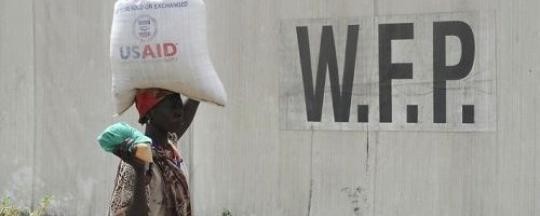The Relief and Rehabilitation Commission in Abyei, which distributes the food brought by World Food Programme, says there is a shortage of food because fears of insecurity have meant that not enough trucks were able to come from Juba last month.
More than 50,000 beneficiaries depend on relief food in Abyei – particularly those who fled their homes north of the river known locally as the Kiir after the fighting in 2011. The RRC director, Deng Juac Dau, said supplies were still in Juba rather than in the WFP stores in Abyei because of insecurity and flooding.
However, emergency supplies have been given out so people do not suffer, he said, but he added that people still needed more. The RRC says this is the second occasion that a ration of relief food for Abyei has been cut this year. Initially, each person received three malwas of sorghum every month, as well as lentils and cooking oil. But during March this year, that amount was reduced by half. Last month, each person received a single malou of sorghum, without oil or lentils.
Achol Ngor lives with her five children in Mading Jokthiang. She said she relied on relief supplies as she had no farm or job. Her husband was also unemployed. She feared how she was going to cope.
The nutrition officer at Abyei hospital, Altom Truk, said that not eating enough increased the risk of conditions such as gastric ulcers and severe weight loss.
But Mawien Ngor, who grows his own food in land around his house in Mabony, urges people to cultivate their own vegetables. He said that even though half his crops had been lost to flooding, he had still managed to grow enough sorghum to eat and to sell. That provided him with money to meet his basic needs.
File photo
Reporting by Abyei Today




